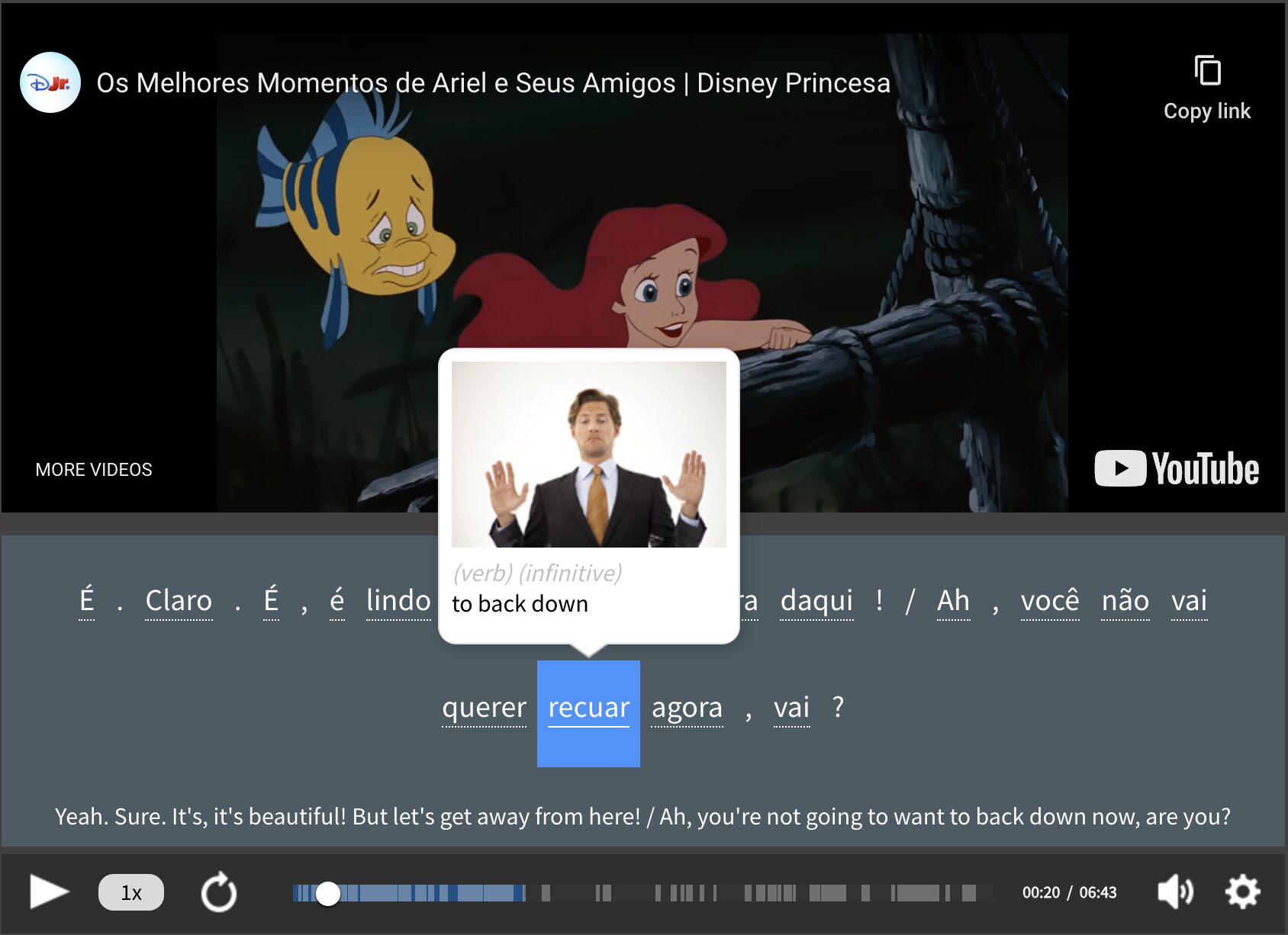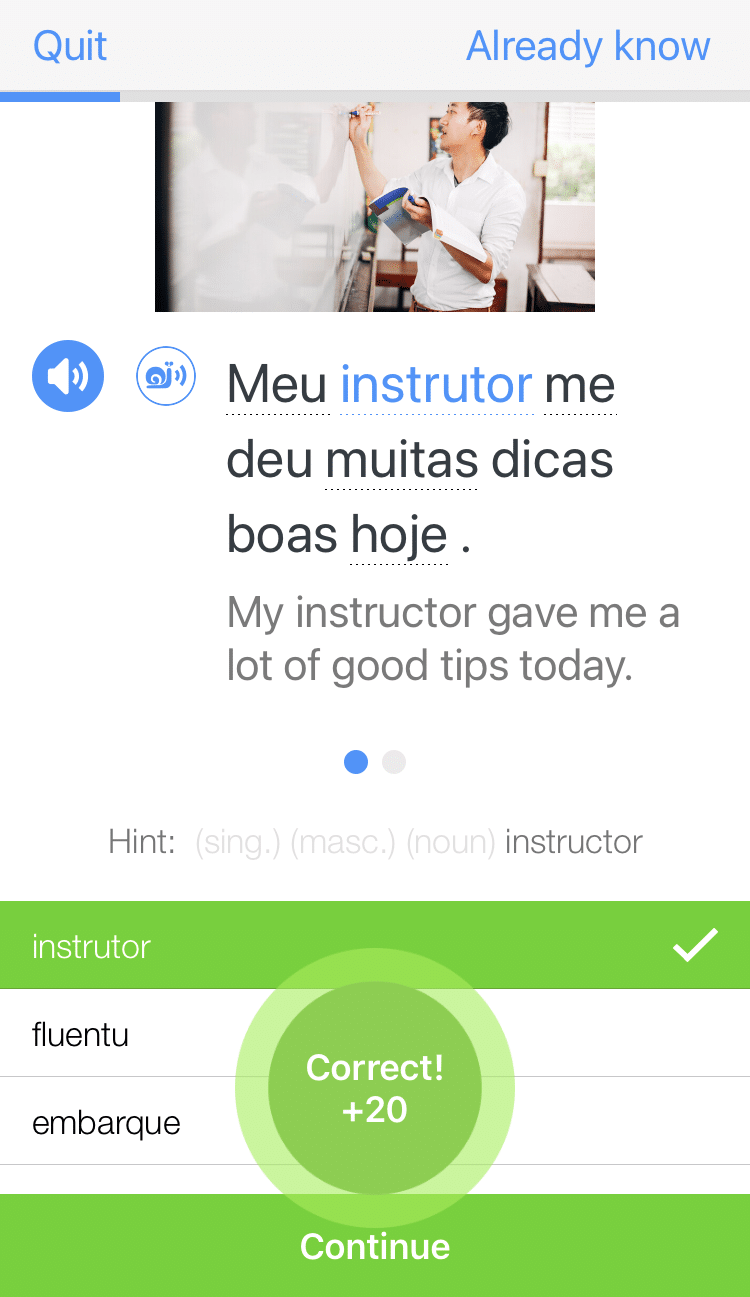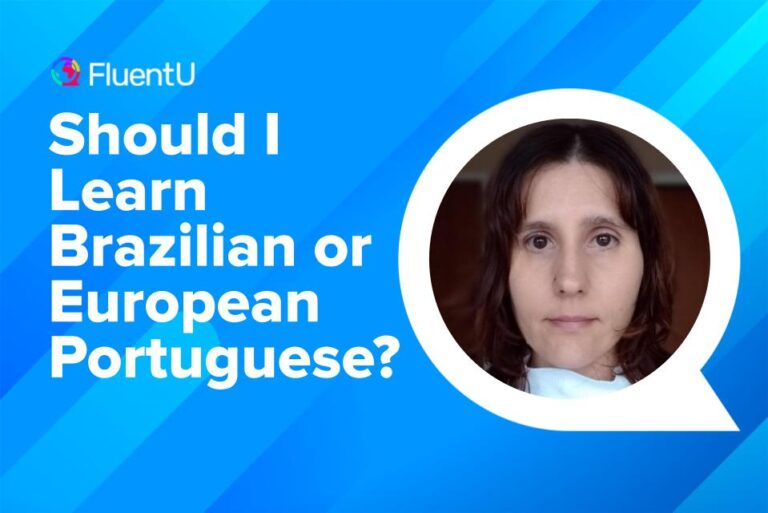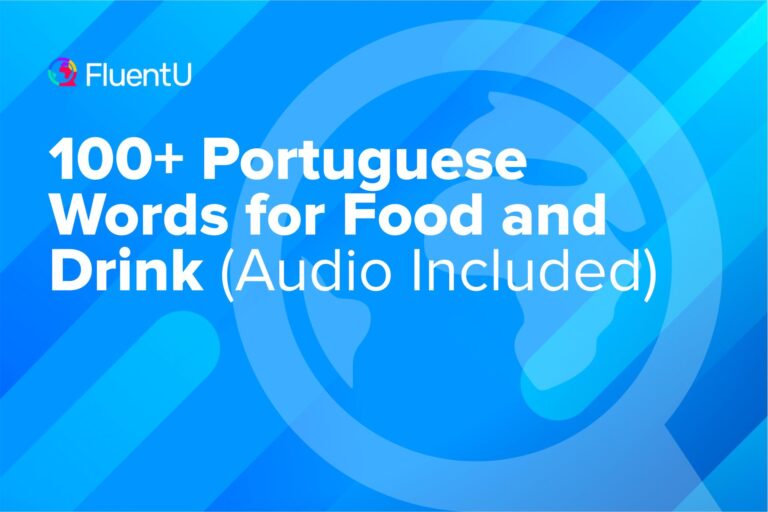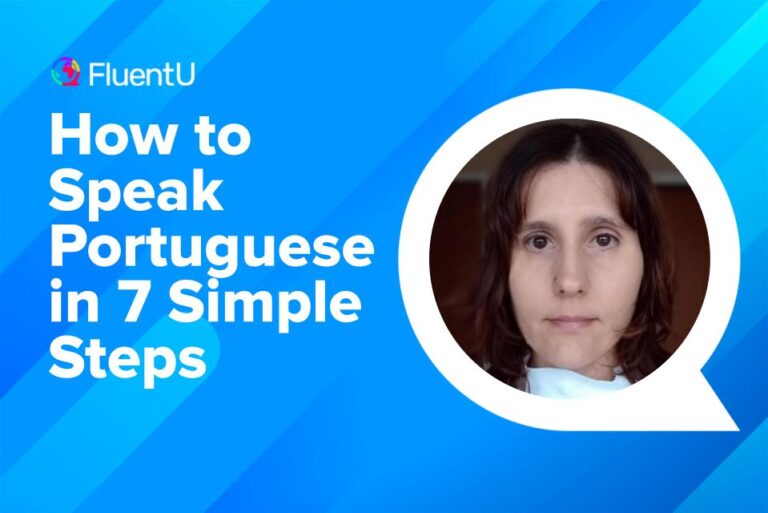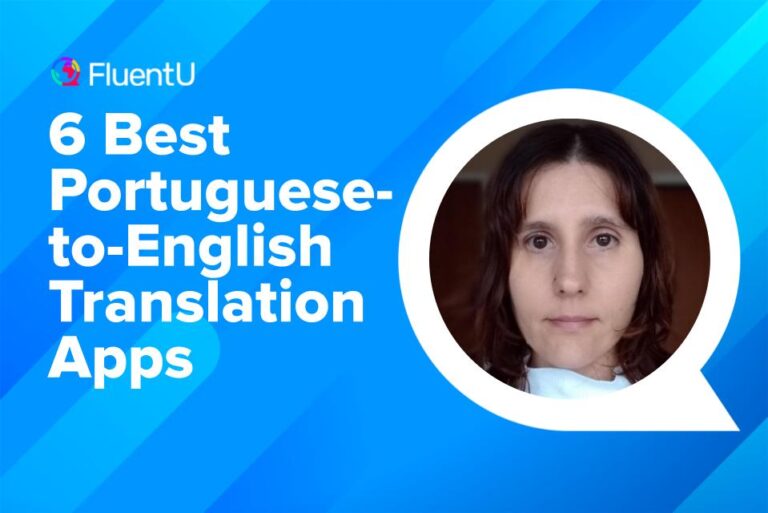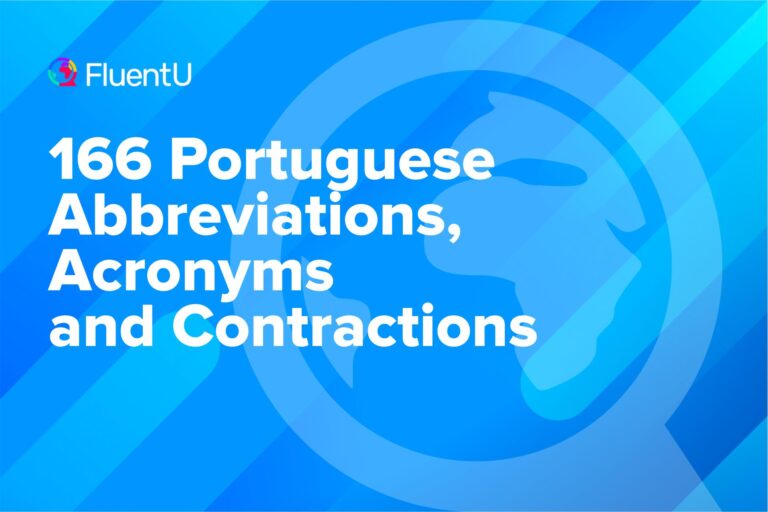Contents
- 1. “Portuguese Short Stories for Beginners”
- 2. “Short Stories in Portuguese (Portuguese Edition)”
- 3. “Learn Portuguese Parallel Text: Easy Stories English-Portuguese”
- 4. “Am I Small? Sou pequena?“
- 5. “The Life of Cleopatra – Bilingual Book (Portuguese-English)”
- 6. “O menino azul”
- 7. “A menina do mar (quem lê sabe por quê)”
- 8. Rosa Stevens’ “Let’s Learn Portuguese”
- How to Use Short Stories to Learn Portuguese
- And One More Thing...
8 Easy Portuguese Short Stories and Collections
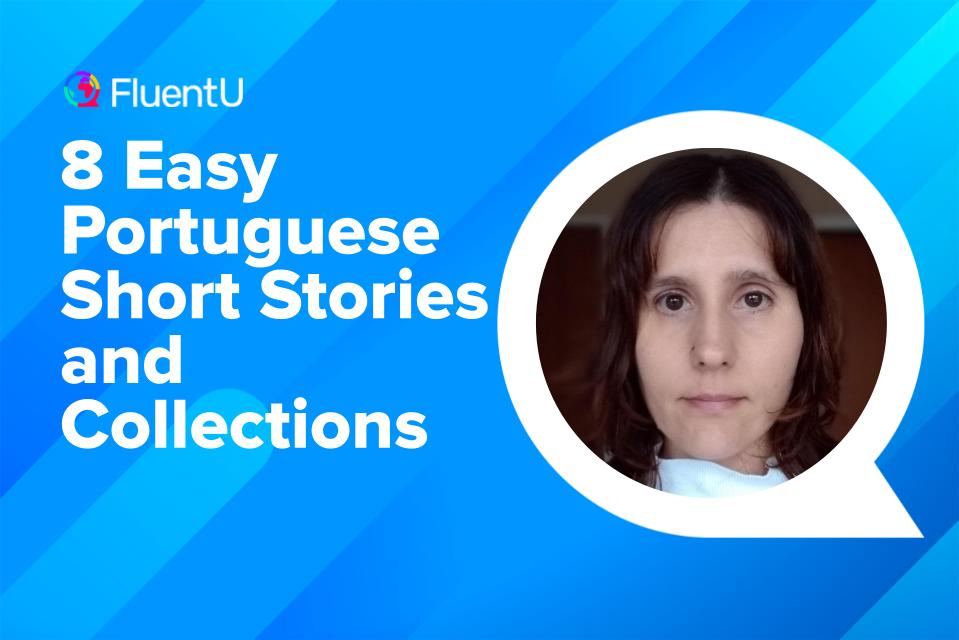
Reading short stories in Portuguese is a fantastic way of dipping your toes into the language. They’re great for beginners as they help build vocabulary and comprehension skills in a way that’s not too overwhelming.
Here we’ll explore some engaging and accessible Portuguese short stories for beginners that will help make your language learning experience enjoyable and effective. These short stories have been specially curated to help students build up their vocabulary and improve their overall knowledge of the Portuguese language, offering the ideal balance between academics and light reading.
Download: This blog post is available as a convenient and portable PDF that you can take anywhere. Click here to get a copy. (Download)
1. “Portuguese Short Stories for Beginners”
Written by: The World Language Institute of Spain and Christian Stahl
Here we have a collection of humorous short stories with a varied mix of genres. Vocabulary phrase lists, English translations and reading comprehension exercises accompany each tale to ensure students are getting the full picture. This book is ideal for Brazilian and European Portuguese learners at a beginner level.
2. “Short Stories in Portuguese (Portuguese Edition)”
Written by: Irineu de Oliveira Jnr.
This book offers an immersive way to learn the Portuguese grammar, vocabulary and verbs. Each short story focuses on a different aspect of the daily routine, following a logical structure as it guides learners through all the standard language essentials they need to know. Ideal for beginner to intermediate Brazilian Portuguese learners.
3. “Learn Portuguese Parallel Text: Easy Stories English-Portuguese”
Written by: Polyglot Planet Publishing
A collection of easy short stories devised to offer a vocab ‘refresher’ for beginner to intermediate European Portuguese learners. These tales focus on the European side of life, meaning you’ll get to tap into plenty of cultural knowledge about Portugal too—how’s that for a handy little bonus?
4. “Am I Small? Sou pequena?“
Written by: Phillip Winterberg (Author) and Nadja Wichmann (Illustrator)
A charming illustrated children’s tale that focuses on a little girl’s pursuit to find out whether she is as small as she thinks she is. As the young protagonist talks to the different animals she meets on her adventure, she discovers a surprising answer to her curious queries. The story is aimed at a younger audience, meaning the language is quite accessible for beginner Brazilian Portuguese learners.
5. “The Life of Cleopatra – Bilingual Book (Portuguese-English)”
Written by: Redback Books and Bilingual Planet
Written in an authentically modern tone, this bilingual text is well-suited for European Portuguese learners across all levels. These stories also add a bit of colloquial knowledge into the mix while conveying the legendary tale of Cleopatra: You’ll view this literary classic from a whole different perspective. The language used in these stories is more conversational and is presented in a manner that reflects how a present-day Portuguese person might tell the story themselves.
6. “O menino azul”
Written by: Cecilia Meirelles
Cecilia Meirelles is one of Brazil’s most renowned poets and children’s authors. “O menino azul” (which basically translates as “The Blue Boy”) combines everything that she does best: Story-telling through a series of rhyming patterns that anyone with a basic knowledge of Brazilian Portuguese can easily follow. This beginner-friendly story, which is nicely accompanied by visuals, follows an imaginative little boy who wishes he had a cheerful little donkey as his friend.
7. “A menina do mar (quem lê sabe por quê)”
Written by: Sophia de Mello Breyner de Andresen
Both Brazilian and European Portuguese schoolchildren alike study this story in its original incarnation. The version we’re linking here is the Portuguese version, and includes a glossary of European Portuguese terms to help young minds make sense of the text they’re reading—a resource which could be just as useful for beginners studying the continental dialect themselves.
8. Rosa Stevens’ “Let’s Learn Portuguese”
The late Lesley Stephens, who preferred to go by the Lusophone pen name Rosa Stevens, lived in Portugal since the 1970s and dedicated more than 25 years of her life to teaching children to read and write in Portuguese. After she was diagnosed with a terminal illness, she made her collection of easy short stories and reading materials freely available to download directly from her website. The stories are aimed at young children, but that makes them the optimal choice for early beginners wanting to build up their basic European Portuguese vocabulary.
How to Use Short Stories to Learn Portuguese
We recommend that you opt for something familiar to begin with. For instance, you could make a list of the stories and fairy tales you grew up reading and try to find their Portuguese alternatives. You can do this by going to the story’s Wikipedia page and changing the language to Portuguese in the bottom left of the sidebar—that should give you the title in both Brazilian and European dialects.
Once you’ve gotten the hang of familiar stories, focus your attention on local books. A search for Portuguese books on Amazon will give you plenty of leads. A simple Google search for famous Brazilian and Portuguese authors is also a good way to point you in the right direction.
And for any new vocabulary you pick up along the way, make sure you note them down to look up in a dictionary later to see them in various contexts. The FluentU program has a video-based dictionary that can show you words as they appear in native Portuguese media.
FluentU takes authentic videos—like music videos, movie trailers, news and inspiring talks—and turns them into personalized language learning lessons.
You can try FluentU for free for 2 weeks. Click here to check out the website or download the iOS app or Android app.
In the end, your hard work will be greatly rewarded. As your comprehension becomes more advanced, you’ll be able to benefit from the vast array of literary content available in public domain libraries from Brazil and Portugal—all of which can be legally downloaded for free. You can get actually an idea of how these work by venturing into more recommendations for books.
Now that we’ve foreshadowed what you can expect, let’s close in on the key plot elements of our post.
While our chapter is coming to a close, your literary saga is just beginning! We hope this list has inspired you to delve into some great tales and revel in their linguistic benefits as you continue navigating the wonderful path towards Portuguese proficiency.
Download: This blog post is available as a convenient and portable PDF that you can take anywhere. Click here to get a copy. (Download)
And One More Thing...
If you're like me and enjoy learning Portuguese through movies and other media, you should check out FluentU. With FluentU, you can turn any subtitled content on YouTube or Netflix into an engaging language lesson.
I also love that FluentU has a huge library of videos picked specifically for Portuguese learners. No more searching for good content—it's all in one place!
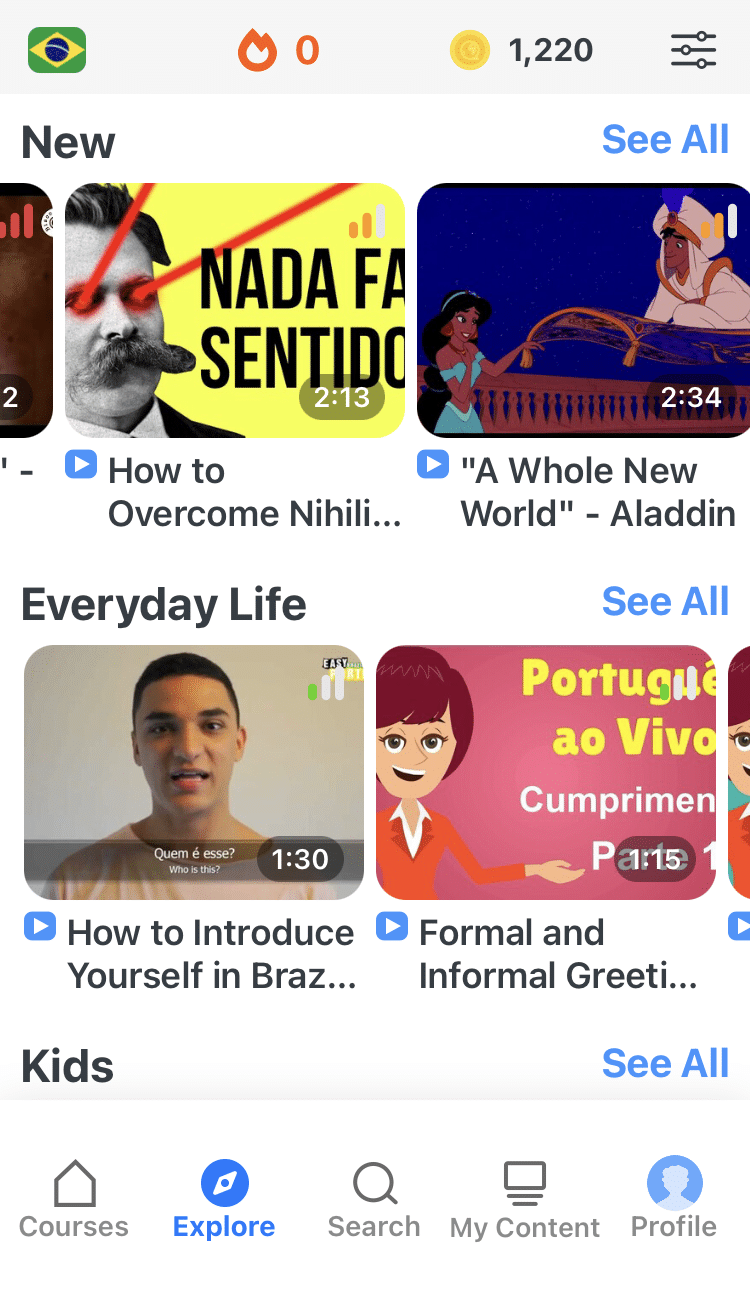
One of my favorite features is the interactive captions. You can tap on any word to see an image, definition, and examples, which makes it so much easier to understand and remember.
And if you're worried about forgetting new words, FluentU has you covered. You'll complete fun exercises to reinforce vocabulary and be reminded when it’s time to review, so you actually retain what you’ve learned.
You can use FluentU on your computer or tablet, or download the app from the App Store or Google Play. Click here to take advantage of our current sale! (Expires at the end of this month.)

